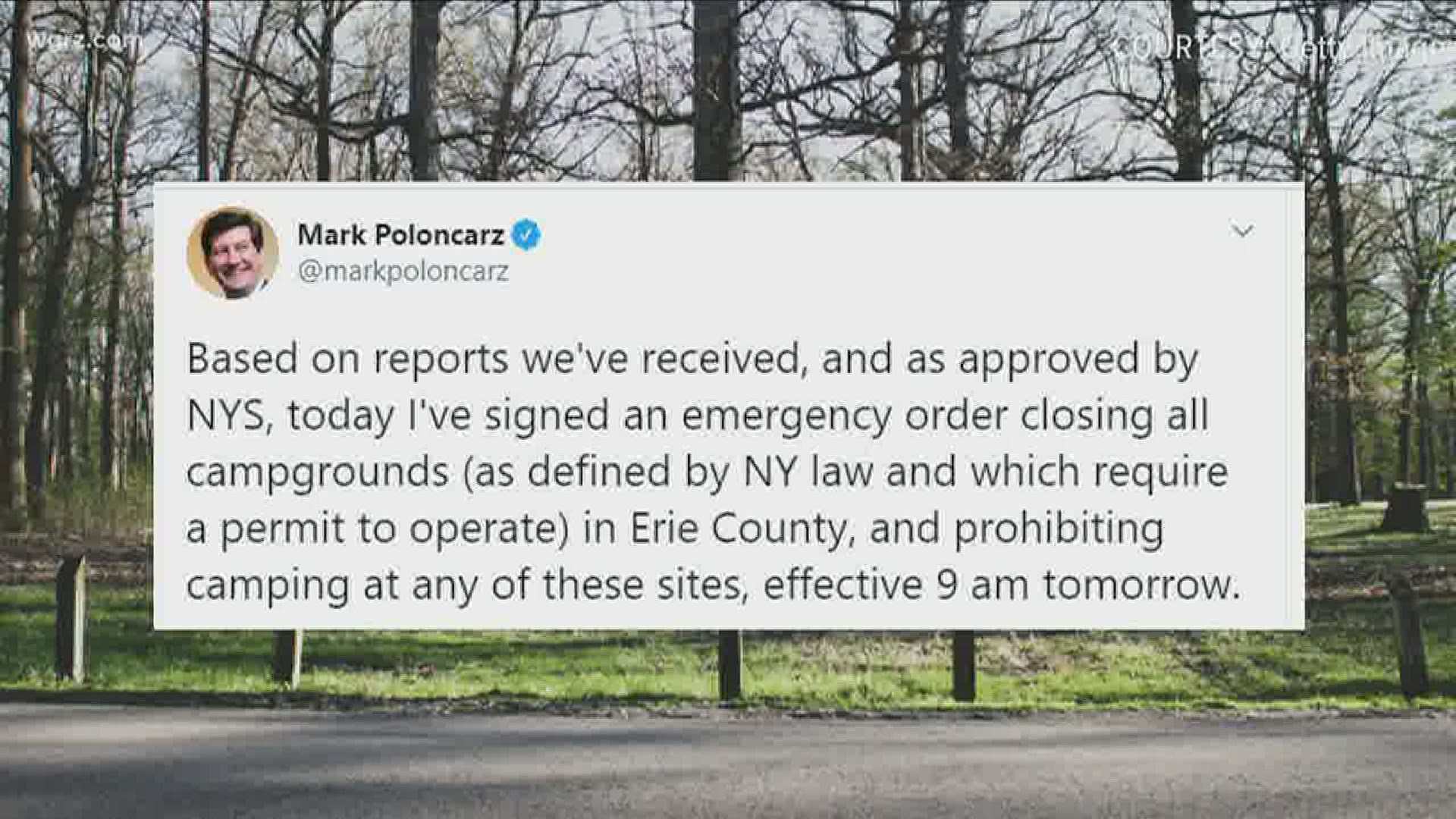BUFFALO, N.Y. — Erie County is closing call campgrounds to help prevent the spread of coronavirus (COVID-19)
Erie County Executive Mark Poloncarz signed an executive order, approved by New York State, closing all campgrounds in the county beginning at 9 a.m. April 15.
Camping is prohibiting at any campsite in the county.
“Based on reports we’ve received, and as approved by New York State, I have signed this emergency order on campgrounds that will go into effect at 9 a.m. tomorrow," Poloncarz said. "Not only do campgrounds allow for large gatherings of people in contradiction of necessary social distancing measures, but under NYS law campgrounds must also be monitored and reviewed by our Public Health Sanitarians, all of whom are currently engaged in stopping the spread of the coronavirus in our community. Our Public Health team is already being stretched in the ongoing response to the COVID-19 pandemic. Closing these campgrounds makes better use of our resources and will help to protect our community.”
Coronavirus symptoms
The symptoms of coronavirus can be similar to the flu or a bad cold. Symptoms include a fever, cough and shortness of breath, according to the Centers for Disease Control.
Most healthy people will have mild symptoms. A study of more than 72,000 patients by the Centers for Disease Control in China showed 80 percent of the cases there were mild.
But infections can cause pneumonia, severe acute respiratory syndrome, kidney failure and even death, according to the World Health Organization. Older people with underlying health conditions are most at risk.
The CDC believes symptoms may appear anywhere from two to 14 days after being exposed.
Human coronaviruses are usually spread through...
- The air by coughing or sneezing
- Close personal contact, such as touching or shaking hands
- Touching an object or surface with the virus on it, then touching your mouth, nose or eyes before washing your hands.
Help stop the spread of coronavirus
- Stay home when you are sick.
- Eat and sleep separately from your family members
- Use different utensils and dishes
- Cover your cough or sneeze with your arm, hot your hand.
- If you use a tissue, throw it in the trash.
Lower your risk
- Wash your hands often with soap and water for at least 20 seconds. If soap and water are not available, use an alcohol-based hand sanitizer.
- Avoid touching your eyes, nose, and mouth with unwashed hands.
- Avoid close contact with people who are sick.
- Clean and disinfect frequently touched objects and surfaces.
- If you are 60 or over and have an underlying health condition such as cardiovascular disease, diabetes or respiratory illnesses like asthma or COPD, the World Health Organization advises you to try to avoid crowds or places where you might interact with people who are sick.

